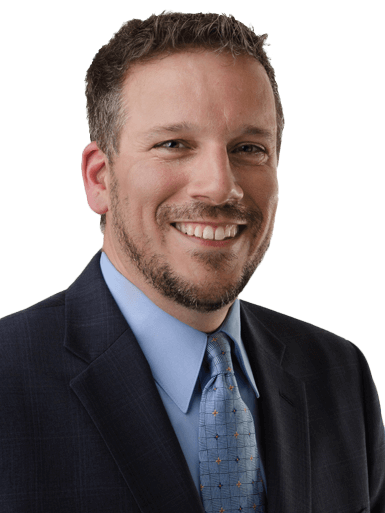High-Profile Charter School Fraud: Lessons Learned
As you may now be aware, the Charter School community was shocked by recent news that Democracy Prep founder Seth Andrew was charged with stealing school funds. Andrew is a key figure in the rise of charter schools in New York and he went on to work as an education adviser to the Obama administration. He was recently charged with wire fraud, money laundering, and making false statements to a financial institution.
What Happened?
According to prosecutors, Andrew withdrew funds from restricted reserve accounts required to be maintained by the New York State Board of Regents. He then funneled the funds through a bank account of a “sister” nonprofit group called Democracy Builders, and then into accounts he controlled. A network contractor discovered theft, and authorities were notified.
Sources report that Andrew is expected to plead non-guilty to the charges; however, the widely publicized incident prompted many Charter Schools to evaluate their own financial oversight and internal controls.
What Should Schools Do Now?
Many charter schools have complex structures, including related foundations, real estate entities, and multi-layered debt structures. These complexities are above and beyond those related to managing the finances and operations of a school in a pandemic. In addition, these mission-critical responsibilities are often accomplished by resource-strained business offices. Of course, approaches may vary given available resources; however, resource-appropriate, and adequate segregation of duties and internal controls are necessary for safeguarding assets.
- Take inventory of your internal controls. AAFCPAs encourages clients to review their current internal controls to ensure there is proper segregation of duties for all cash receipt, cash disbursement, payroll, and general ledger maintenance processes. One person should not be responsible for all functions in one process. In a case where adequate preventative controls cannot occur, then detective controls should be implemented. As a reminder, preventative controls prevent fraud from happening; detective controls catch fraud after it happens, however, in a timely manner.
- Utilize a month-end closing checklist. This checklist should detail the frequency of general ledger account reconciliations, the support that is acceptable for the reconciliation, who is responsible for preparing the reconciliation, and who will review the reconciliation.
- Cash is king. Cash accounts should be reconciled and reviewed monthly. This includes reserve and escrow accounts that typically have minimal activity. All dormant cash accounts should be closed with the bank. Multiple cash accounts for various internal purposes may be helpful as a tracking mechanism; however, these create opportunities for fraud.
- Oversight by the appropriate school leader. School leaders play a critical role in internal controls and segregation of duties. Regardless of school or business office size, AAFCPAs advises school leaders to take an active role in financial operations. For smaller schools, the school leader may play a larger role in accomplishing adequate segregation; For example, reviewing and approving the weekly payroll reports. In a larger school, a leader may only review a payroll change report when changes are made. AAFCPAs advises even those schools with sophisticated CFOs to ensure adequate engagement from leadership and adequate oversight and understanding of the financial situation.
- Develop a Risk Management Plan. Risk Management Plans can be customized and tailored to each school and should be resource appropriate. A risk management plan may be narrowly focused and as simple as reviewing the financial internal controls on a regular basis with a finance or audit committee. Schools with more resources may adopt a full Enterprise Risk Management (ERM) Plan that would assess all potential risks, including financial risks. The insights revealed from ERM plans are invaluable.
- Act now. It seems that the court of public opinion holds charter schools to a much higher standard than public schools, and each story of misappropriation further harms the charter school movement. Google “Charter School Theft” and a long list of fraud stories will appear. Most of these fraud cases could have been prevented with better internal controls. Schools need to look at their internal controls and make sure that they are doing all they can to safeguard the resources that are meant to educate our students.
How May We Help?
AAFCPAs has worked with many charter schools and Charter Management Organizations (CMOs) over the years to assist with strengthening their internal controls, including:
- Reviewing current internal controls and providing best practice recommendations;
- Developing month-end closing checklists to ensure the proper level of reconciliations and reviews;
- Working with management to develop and document financial Risk Management Plans;
- Facilitating risk committee meetings in developing a resource-appropriate Enterprise Risk Management Plan.
If you have any questions about fraud or fraud prevention, please contact your AAFCPAs Partner, or John Buckley, CPA at 774.512.4039, jbuckley@nullaafcpa.com.
About John Buckley
John is the leader of AAFCPAs’ Educational Services practice, serving diverse academic and education services clients spanning independent schools, colleges/universities, special education schools, education services, charter schools, and charter management organizations (CMOs). John has served charter schools and CMOs since 1998 and currently advises schools and CMOs in multiple states. He is a frequent presenter at the National Charter School Conference as well as for the Massachusetts Charter Public School Association. John is also Chair of AAFCPA’s internal Risk Committee and developed and implemented a successful Enterprise Risk Management Program that is used internally at AAFCPAs.

